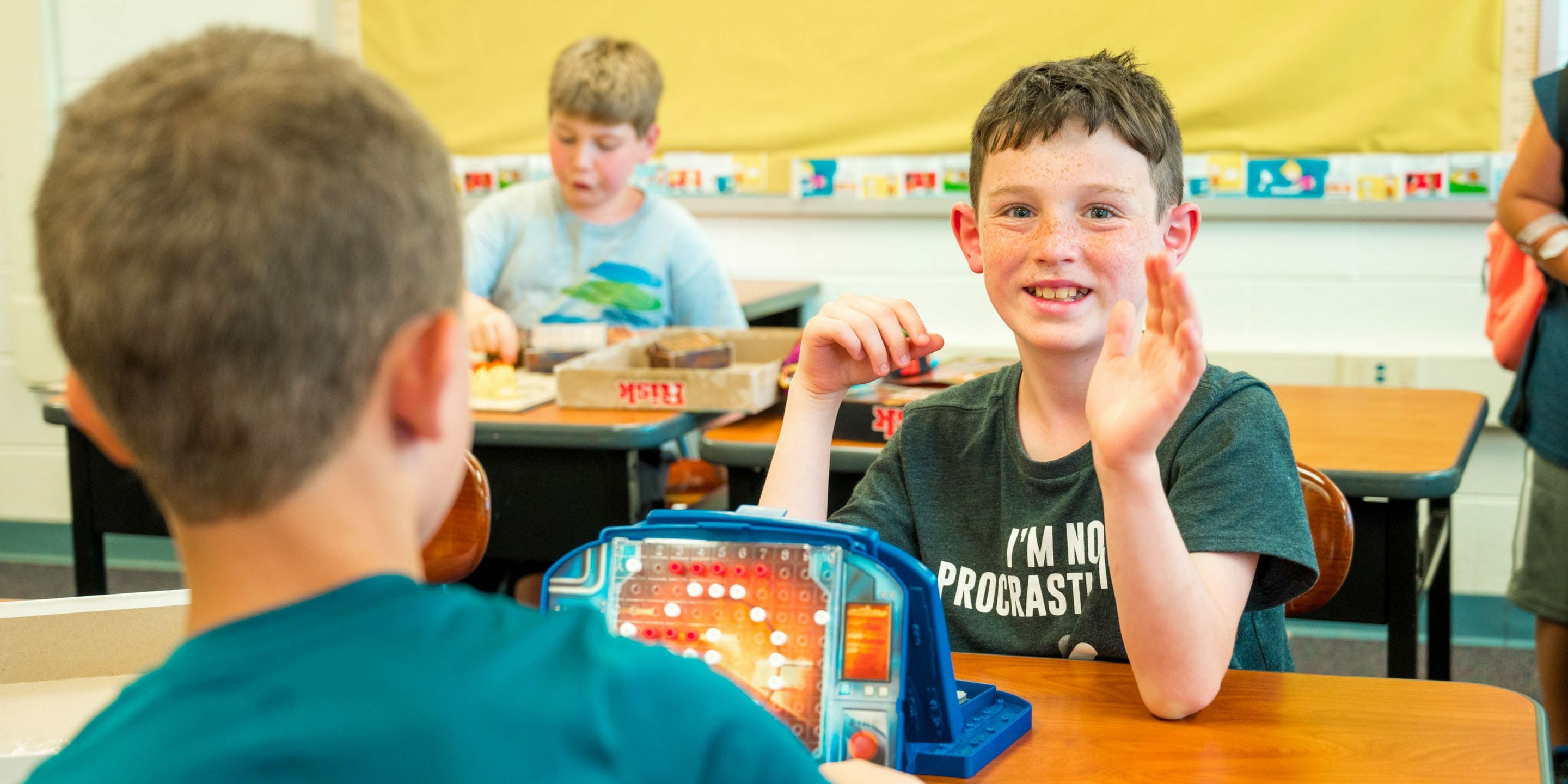

Have you ever wondered about how to learned to face the door when riding an elevator? What about stepping to the right hand side on a moving walkway or an escalator? Who taught you proper handshake etiquette? Our lives are filled with little interactions that test our social competencies.
Many students find themselves with foreign language or math support as the curriculum becomes difficult. Supporting young men when the hidden (or sometimes not so hidden) social curriculum becomes complication is key part of successful transition to adulthood as much as learning skills that are typically measured by standardized testing.
Making Friends and Keeping Friends
Who were your friends in elementary, middle and high school? Chances are you made friends with those who were geographically desirable, lived in the local neighborhood and enjoyed the same activities that you did. Our leadership team recalls friends centered around soccer, scouting, STEM clubs, band, basketball and football interests. Research supports the concept that shared interests are key to building friendships. No wonder our leadership team recalls gravitating towards spaces where we felt a sense of belonging. This is exactly what the Camp Sequoia environment seeks to achieve.
Campers select activities based upon individual interests within their age groups. This authentic approach helps to build bonds of friendship over chess, archery, swimming, art or improv where young men share a desire to be part of the activity and have a mutual interest as a means of a conversation starter.
Specifically, this also means that our campers aren’t forced to go to art or baseball or gaga if that isn’t their thing. When young men are given the opportunity, in a supported environment, to engage with peers who are interested in similar things, we find that they are more confident not only in that setting, but able to parlay those interactions into a confidence to try less familiar and comfortable activities with their friends.
Learning to Work as Part of a Team
In a world where many kids experience teamwork via a shared google doc for a school project, or as a faceless voice support their advance via video and headset on the newest trending video game, human-centered teamwork is still a valuable school, social and workplace goal. Just like Linus from the classic Peanuts cartoons had a security blanket for support when he ventured out in the world, in many cases, technology can be a coping mechanism to insulate from direct interactions with people. People can be messy with a lot of moving parts. Non-neurotypical students often can struggle with the intrinsic disorder that can come from multiple people, with their own personalities working or playing together in the same space.
Having open ended, inquiry-based, student designed activities and programs help campers develop these essential skills. The give and take of negotiation, compromise and resolution are skills beyond building the Eiffel Tower out of K’Nex or practicing a short skit for the camper talent show, as discussed in our blog, “How Summer Camp is Instrumental in Developing Peer Relationships”. These skills are developmentally appropriate as children move to a world view that is less “me” and more “we” centered. These skills set children up for success in a world where social skills continue to have a growing importance in the labor market.
Building Emotional Intelligence
An emotional IQ or E-Qi Discussed here is something that scientists have identified as elastic and not static. It comes with an understanding of our own perception of the world and how we internalize and cope with a variety of inputs. At Camp Sequoia, our conversations about emotional intelligence dovetail with the social skills development.
This serves to build self-confidence and social resilience as identified by recent work published in the Journal of Happiness Studies. Camp, from a camper’s perspective should be fun and engaging, but ultimately, the little interventions and strategic supports which foster teachable moments. We believe, as does the Greater Good Science Center at Berkley that teachers need to social emotional skills and that these skills can have a profoundly positive impact on the success of children.
At Camp Sequoia, We Help Our Campers Become Their Best Selves
A structured environment with spaces to recalibrate, staff support, and an understanding team of professionals serves to provide scaffolding for our campers successes. Whether it is a 10 year Camp Sequoia staff member who is a licensed teacher, or a certified school counselor or any of the staff that train for over two weeks before camper arrival, helping campers to develop the tools in their toolbox for self-regulation is an important part of the Camp Sequoia experience.
From a camper’s prospective camp is fun, dynamic and an engaging community where they can fit in and experience a sense of belonging. Behind the scenes Camp Sequoia, rooted in research, empowers young men by providing a safe space for them to have fun, develop deep and meaningful friendships and gain the confidence. Specifically, our parents and campers find that the Camp Sequoia experience provides an opportunity to grow into the best versions of themselves well beyond the summer months.
